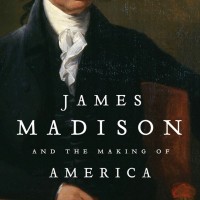Literarea Review: "James Madison and the Making of America"
- Details
- Published on Thursday, 05 April 2012 11:45
- Written by Kevin Kizer
The TV show doesn't give me enough airtime and I can't wait for the next magazine to come out so I decided to post a new literary review anyway. You're welcome!
James Madison and the Making of America
By Kevin R.C. Gutzman
As someone who is a bit of a Madison-phile or, more directly, a Virginian Founders-phile, this book was right in my wheelhouse. What I find most interesting are the years immediately after the Revolution ended when the various states had to adjust to true statehood. In short, they had to put on their big boy pants and were struggling a bit (as big boy's do).
Take law making for instance. Virginia was still following old colonial laws and on the verge of levying a new tax to support religion. What certain legislators felt made this law different from past calls for state-supported religion was that it allowed the taxpayer to select the recipient of his contributions.
Somewhat surprisingly this law found great support from one of the luminaries of the Enlightenment, Patrick Henry. This was because men like Henry felt the lack of religious authority was resulting in a general breakdown of morals in society. I mean, the next thing you know men will stop wearing waistcoats and powdered wigs! Where will degradation end?!
Madison had what you might call a predisposition to revulsion when it came to governmental support of religion. While there was a philosophical element to his revulsion, there was also a very concrete and real element to it as well. After all, Madison remembered well the persecution of various religious sects by other religious sects right in his backyard just a few years back.
So Madison, in his great Madisonian way, took the proposed law head on in the Virginia State Assembly. While the law focused on Christianity, Madison wondered which version of the Old Testament would be used – the Hebrew, Septuagint Greek or Vulgate Latin? And which translations and canon of scriptures would be adopted – Protestant, Catholic or Lutheran? And how could a judge decide who was Christian and who was not? And, and, and...the questions went on and on. After Madison's arguments, instead of taking a final vote, the Assembly did what every lazy legislature has done ever since – copped out on making a tough decision under the guise of "letting the people decide." And who thought the idea of the popular referendum a modern thing? This led to a petition campaign which, according to Madison, "made a noise thro' the Country."
His contribution to the campaign became his first great state paper, "Memorial and Remonstrance Against Religious Assessments." This piece was quite effective at swaying regular Virginians as well as the various religious sects. How effective? When the next session of the Assembly opened, the bill – which only a year earlier had won an initial vote by 47-32 – remained tabled and never came to vote. The popular dissent was overwhelming.
This book is relatively thorough, covering the years leading up to the Revolution and especially focusing on the 1787 Philadelphia Convention, ratifying the Constitution, inaugurating the Constitution, and, finally, Madison's years as Secretary of State and President. Gutzman's style of writing is refreshingly sprite at times, interjecting wit on occasion and noting ironies here and there, e.g. when a young Madison complained to a friend that he wouldn't live a long life, Mr. Gutzman points out that it was a complaint Madison would continue to make for the next 60 or so years. "James Madison and the Making of America" is probably not suited for a first-time Madison reader because of the detail and the depth of information. But even though it strikes more of an academic tone, Gutzman's writing style saves what could have been a very dry read.


















































